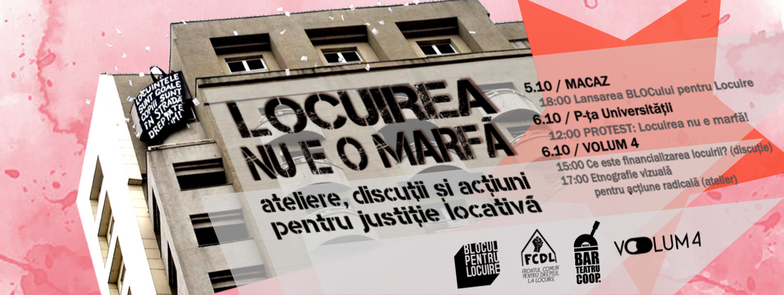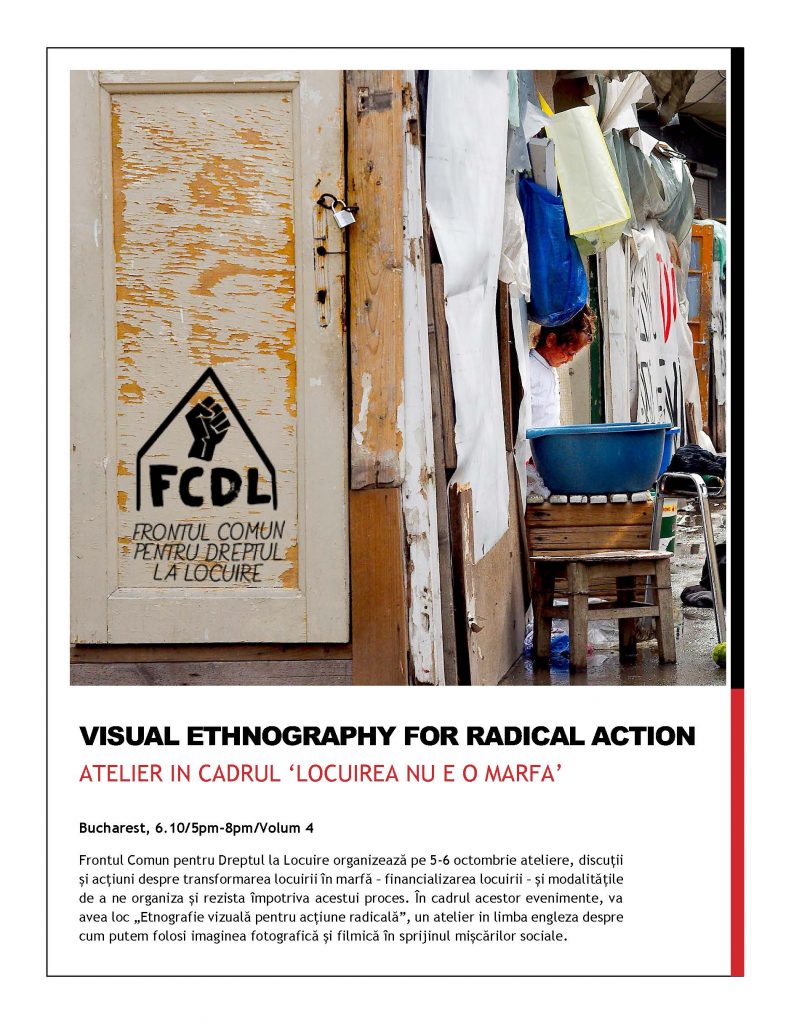![]()
I am, together with a collective of 14 people spread around the world, launching the first call for papers for a new publication called the Radical Housing Journal. This is a horizontally managed, feminist and anti-racist publication aimed at academics and activists working around the fight for the right to housing worldwide. The CfP is reported below attached and you can read our manifesto at www.radicalhousingjournal.org
Please share this information with your colleagues and with non-academic activists that may be interested in this project. We are looking for 500 words abstracts by the 5th of March and that contributions are paid for and peer-reviewed.
RHJ – Call for Papers Issue 1The RHJ is an orientation, a praxis for doing research and action. It seeks to critically intervene in pre and post-crisis housing experiences and activist strategies from around the world without being confined to the strict dogmatism of academic knowledge production. Check out our Manifesto at www.radicalhousingjournal.org. 500 words abstract by the 5th of March 2018 at collective@radicalhousingjournal.org All contributors will receive a compensation for their work (£50 per article) |
| The first issue of the RHJ will focus on practices and theories of organising around housing struggles that have emerged post-2008. Conscious of the fact that the 2008 crisis did not impact in the same way everywhere, we invite contributions addressing how, in the last ten years, organising and activism have changed both locally and globally. What did that crisis bring to the fore and how have activists worldwide responded to it? How do those responses relate to older mobilizations, and what emerges as different? How can resistance be theorized today, and what can theory do for the future of housing struggles? We invite theoretical and empirical pieces, focusing on specific cases or speculative in nature. |
The RHJ is structured around four sections.The first two host substantive original works and are blind peer reviewed (by one academic and one activist non-academic). The other two – conversations and updates – are not peer-reviewed. The long read / Focus on critical analysis and theory-making MAX 8,000 words per article, including references, excluding picturesWe welcome papers on theorising resistance and activism in the post-2008 worldwide, being they driven by speculative, case-specific or comparative arguments. Papers should aim for theoretical innovation and conceptual finesse. Retrospectives / Focus on specific cases, histories, actions MAX 8,000 words per article, including references, excluding picturesThis section welcomes papers that are oriented at reconstructing, in details, particular histories of movements, organisations and/or actions in the post-2008 scenario worldwide. Paper should aim for historical rigour and depth. Conversations / Reflections from the field of action and organisation MAX 6,000 words per interventionDebate-like pieces, written collectively, to reflect on specific actions and strategies. We welcome reflection on the challenges of particular organising approaches and practices. Updates / Reviews, provocations, updates on actions MAX 1,500 words per textWe welcome reviews of books, films & more; and updates on current actions.
Deadline for 500 words abstracts: 5th of March 2018Response to authors: by mid-March 2018 // First draft of papers by: 2nd July 2018 In a .docx file, write your name, institution or group affiliation, email, title, 500 words abstract, six keywords and submit to collective@radicalhousingjournal.org |



